The Independent's journalism is supported by our readers. When you purchase through links on our site, we may earn commission.
The story of a cancer survivor who went on to create her own line of empathic, cliché-free greetings cards
'I always thought get well cards were strange because it would be like, 'Well, I’ll try to get better!''
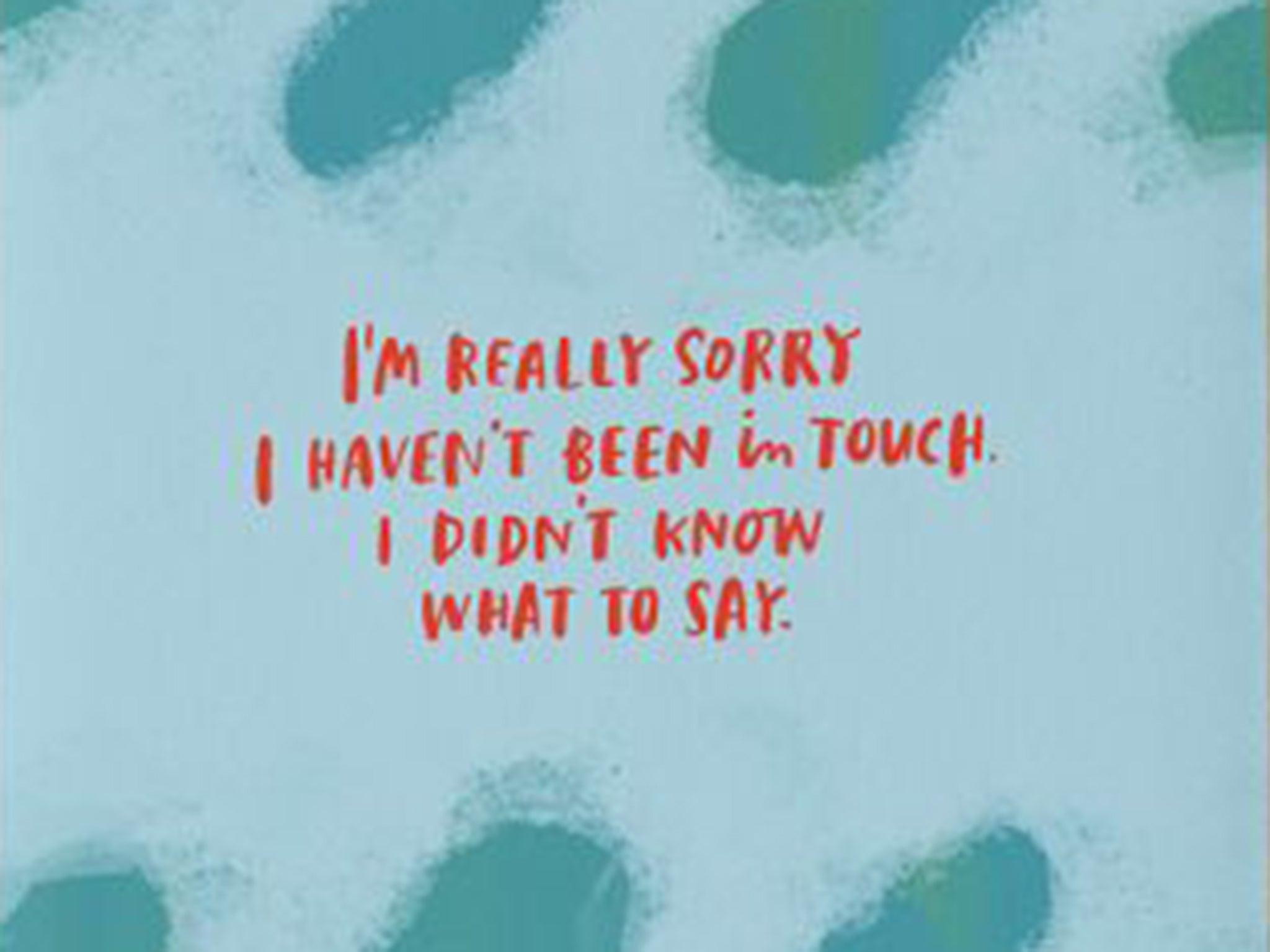
Your support helps us to tell the story
From reproductive rights to climate change to Big Tech, The Independent is on the ground when the story is developing. Whether it's investigating the financials of Elon Musk's pro-Trump PAC or producing our latest documentary, 'The A Word', which shines a light on the American women fighting for reproductive rights, we know how important it is to parse out the facts from the messaging.
At such a critical moment in US history, we need reporters on the ground. Your donation allows us to keep sending journalists to speak to both sides of the story.
The Independent is trusted by Americans across the entire political spectrum. And unlike many other quality news outlets, we choose not to lock Americans out of our reporting and analysis with paywalls. We believe quality journalism should be available to everyone, paid for by those who can afford it.
Your support makes all the difference.When 38-year-old Emily McDowell was diagnosed with cancer 14 years ago, she found herself taken aback at some of the words of “comfort” that were sent her way.
As she endured nine months of chemotherapy and radiation to tackle stage 3 Hodgkin’s lymphoma, friends repeatedly informed McDowell of remote relatives who shared the disease… and had died from it. Others told her that everything happens for a reason. Some simply disappeared. The only cards she received were adorned with “get well soon”.
“I always thought those cards were strange because it would be like, ‘Well, I’ll try!’” says McDowell, laughing.
Fortunately, she did get well. McDowell, who lives in Los Angeles, has been in remission ever since and spent the following decade forging a successful career as an advertising art director. “I didn’t want to make cancer a big part of my identity and wanted to put it behind me and move forward,” she recalls.
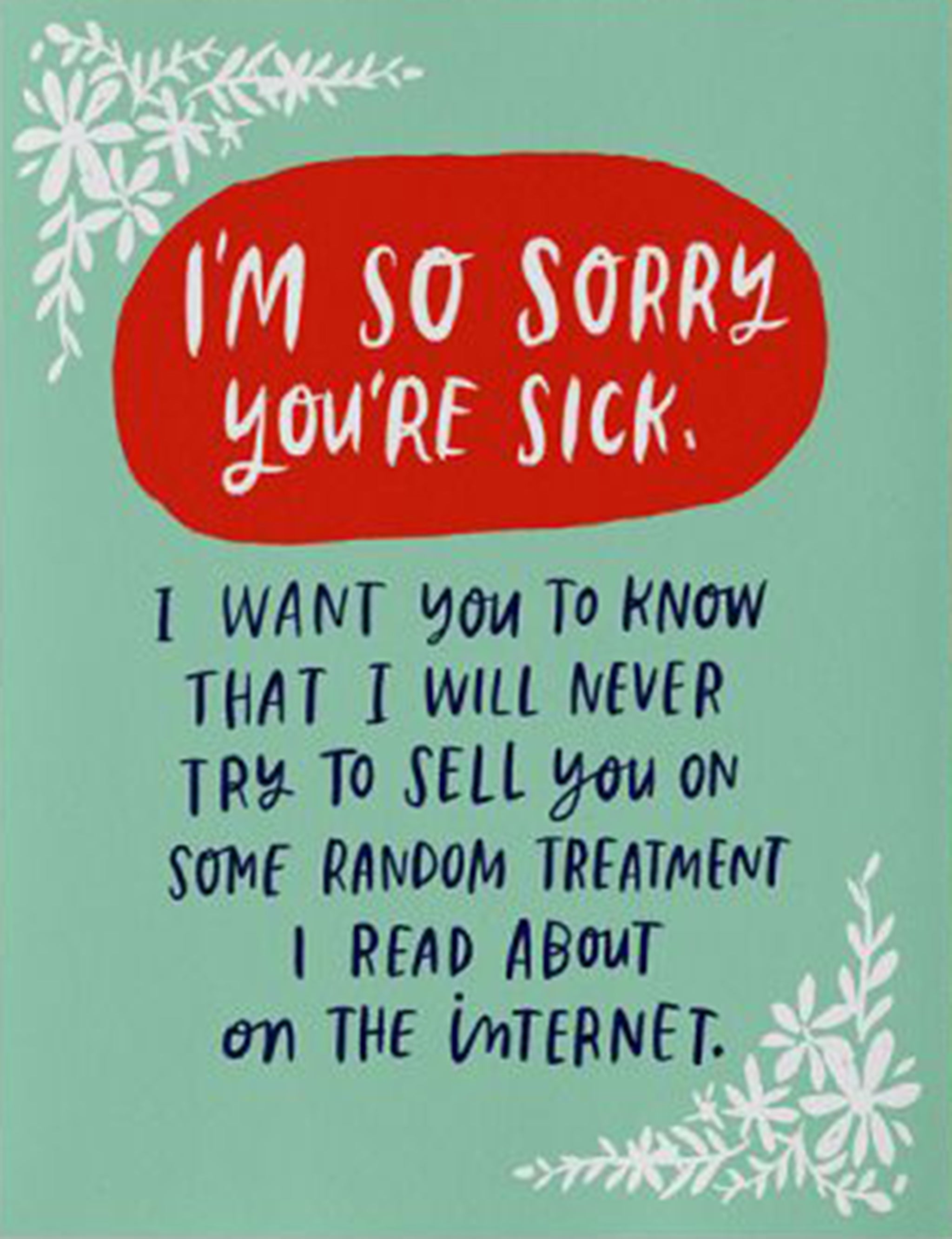
McDowell enjoyed the creativity her job brought but ultimately found herself unfulfilled. Four years ago, just as she was pondering what she should do with her life, one of her best friends, Amy, was diagnosed with an aggressive form of cancer and died just three months later.
“It really brought me back to when I was sick. Nobody knew what they should say to Amy, and mutual friends were coming to me to ask for advice. I realised my own experience had given me a perspective that was really valuable.”
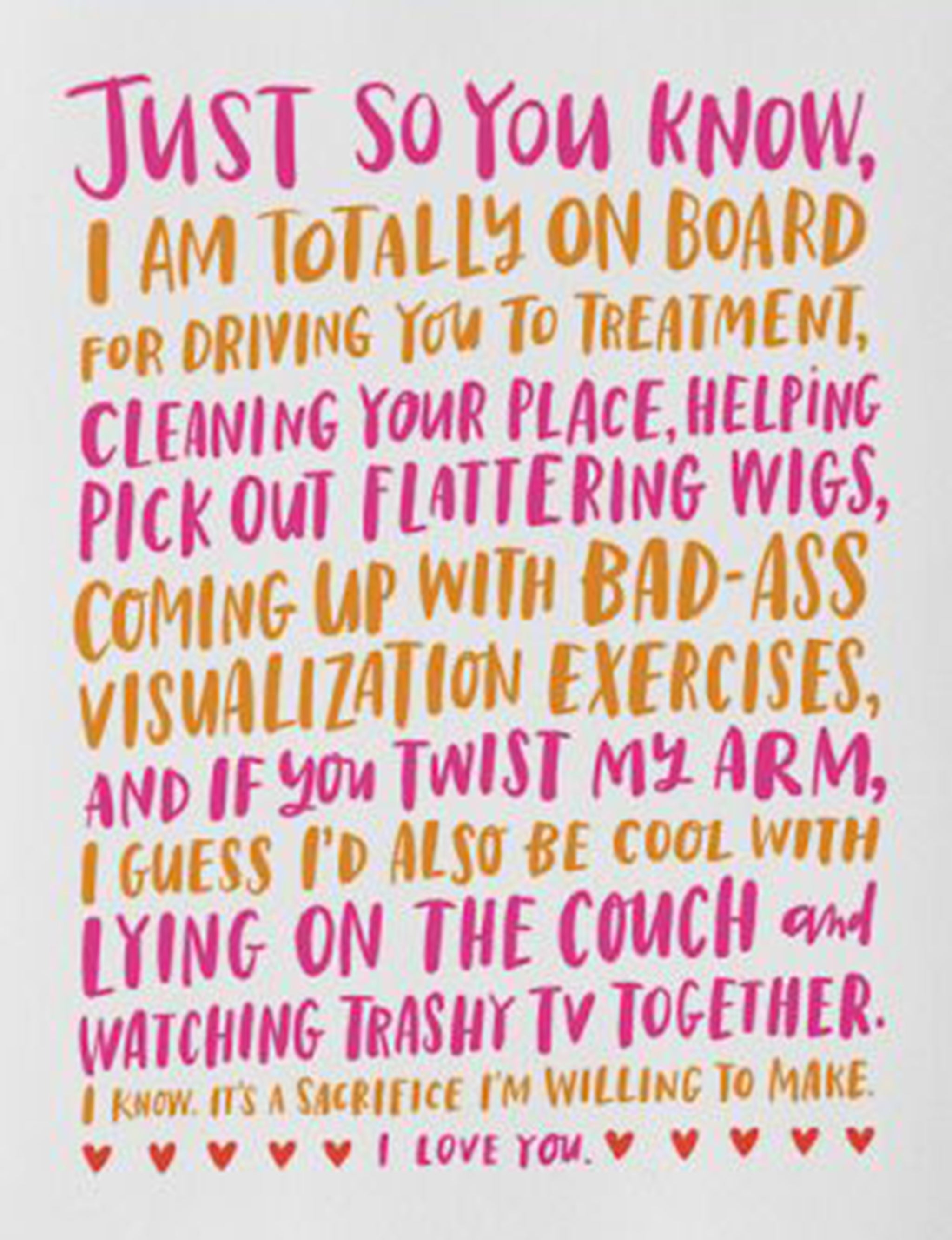
McDowell had been playing around with the idea of launching her own line of cards for a while. What happened gave her the encouragement she needed to branch out on her own. She sat down at her kitchen table and designed her first card. It was January and so she set about creating a Valentine’s Day card. It read: “I know we’re not, like, together or anything but it felt weird to just not say anything so I got you this card. It’s not a big deal. It doesn’t really mean anything. There isn’t even a heart on it. So basically it’s a card saying hi. Forget it.”
There wasn’t a fluffy bear in sight. McDowell printed up 100 and uploaded the image to her online store. She sold 1,700 in a week. “I suppose it speaks to a relationship that’s so common that has never been represented in the Valentine’s world before,” suggests McDowell. “In many ways cards have been the same for years, in that they don’t speak to the relationships we have; they speak to the relationships we want to have. I felt there was an opportunity there.”

With the renewed conviction that she had something worth saying, McDowell launched her business two years ago with a collection of 40 cards, with sentiments you won’t find in Clintons. Since then she has moved into a studio, hired 12 people, and her cards are now available in 1,600 stores around the world.
But it is her most recent collection of empathy cards, released less than two weeks ago, that has really captured people’s imaginations.
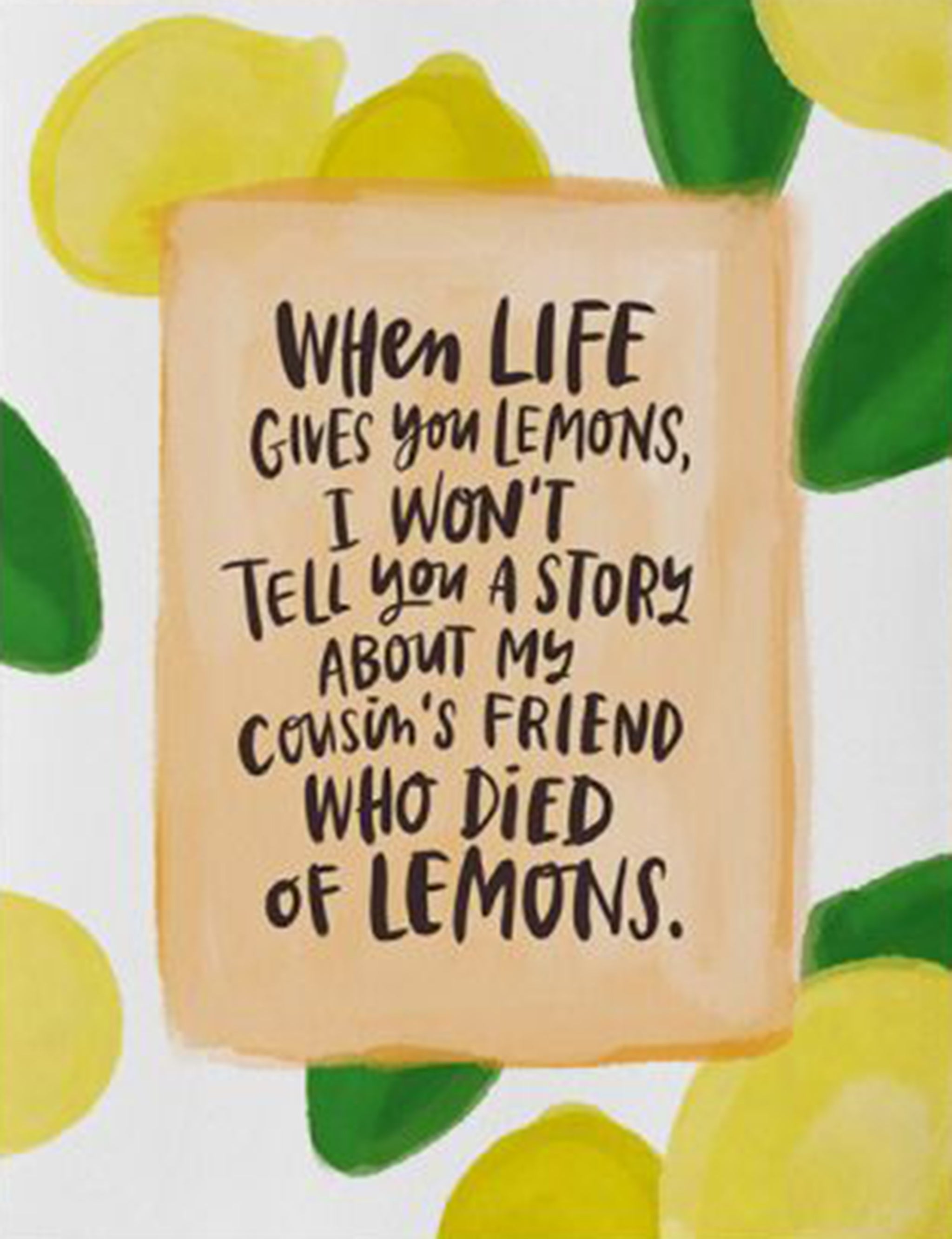
Thinking about the things that she wishes people had said to her when she was undergoing chemotherapy, the cards include messages such as “I promise never to refer to your illness as a journey. Unless someone takes you on a cruise” and “I’m really sorry I haven’t been in touch. I didn’t know what to say”. They are honest, funny and poke fun at the platitudes people often reach for.
Since the company’s inception, she knew she wanted to create cards for people who were sick. But she held off, afraid that she would run the risk of creating a brand all about illness.
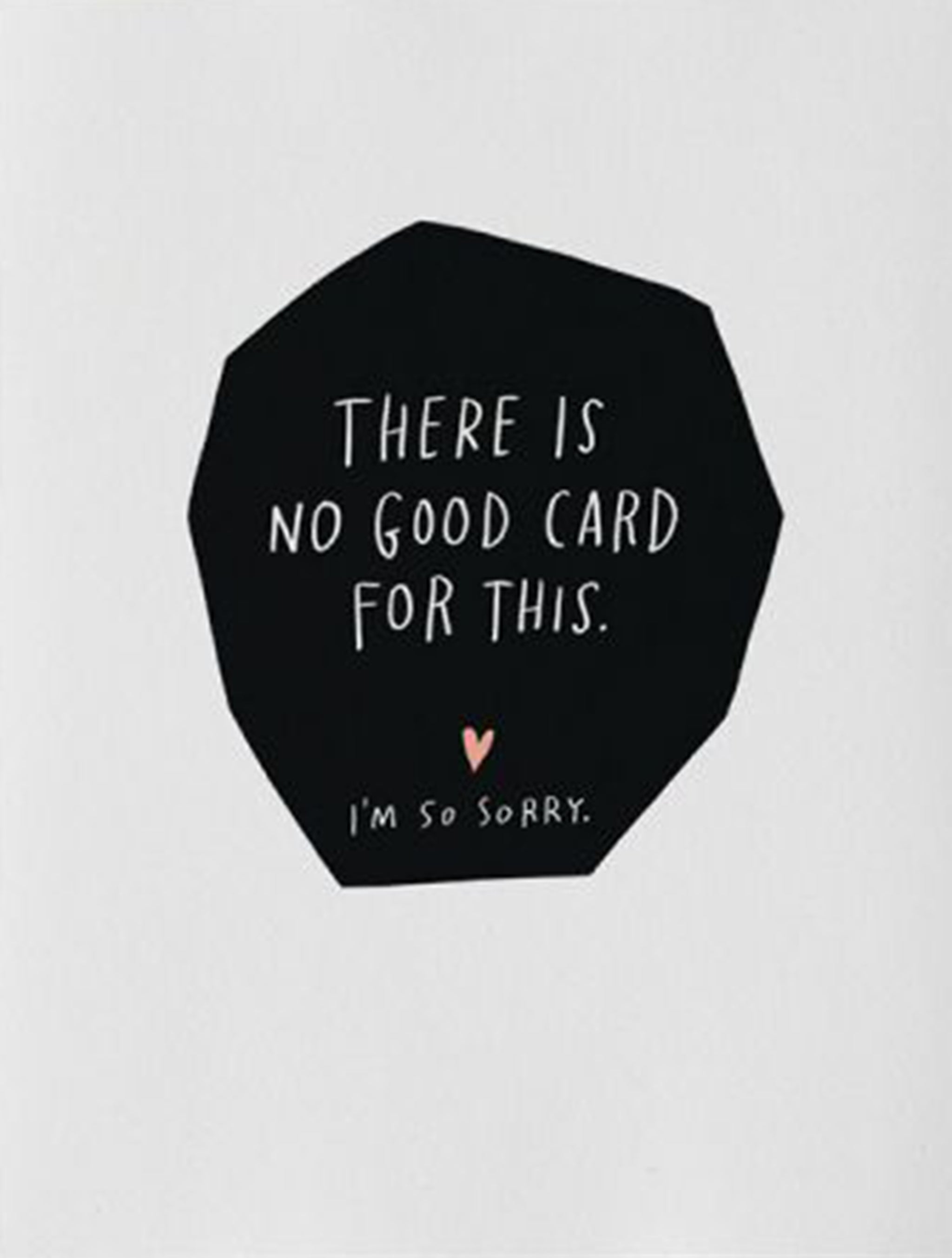
“I didn’t want that,” she says. “I wanted to make a broader brand about the human condition and about truth telling. I worked in advertising so I know how to build a brand. I knew it would be better to do this line when I had a bit more of a platform.”
McDowell has been overwhelmed by the response and received over 10,000 emails from all around the world.
“My goal is to change the conversation in how we talk about illness and the way we speak with sick people. If something that I created can spark that conversation, then that’s the most rewarding thing I can think of.”
Join our commenting forum
Join thought-provoking conversations, follow other Independent readers and see their replies
Comments